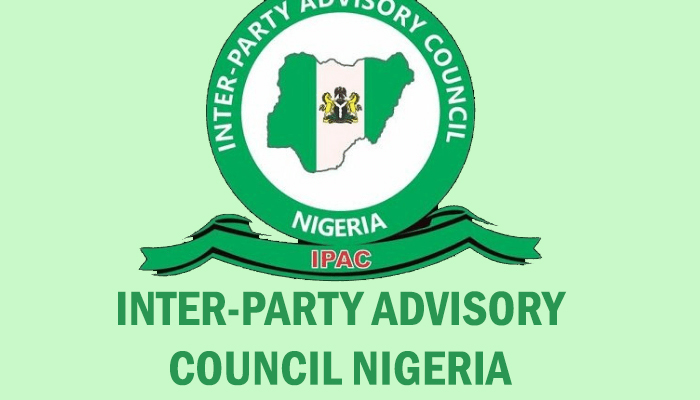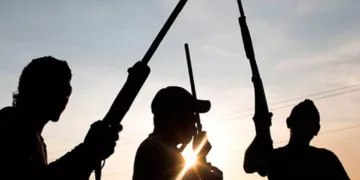To ensure strong political party structures, the Inter-Party Advisory Council (IPAC) has demanded the restoration of annual grants to political parties earlier expunged from the 1999 Constitution (as amended) by the National Assembly.
It said that funds were required to build strong structures, adding that this explains why IPAC demanded the restoration of annual grants to political parties by the federal government.
It also demanded the scrapping of the State Independent Electoral Commissions (SIECs), saying the enormous powers and influence of state governors affect the independence status of the electoral commissions nationwide.
It said the charade called local government elections conducted by SIECs make mockery of the nation’s democratic process, adding that it retards the growth of political parties that are not in government despite having grassroots support.
It called for the autonomy of local government system in Nigeria as the third tier of government closest to the people, noting that politics is local and citizens should be encouraged to participate actively in grassroots politics, adding that it is one way of deepening democracy in Nigeria.
IPAC promised to present its comprehensive Constitution and Electoral Act Amendments proposal to the National Assembly for consideration and inclusion in the ongoing review of the 1999 Constitution.
The demands were made by the national chairman of IPAC, Alhaji Yusuf Mamman Dantalle, while delivering his speech at the African Democratic Congress (ADC) Democracy Summit with the theme, “Solid Political Party Structure Critical To The Sustainability Of The Democratic Process,” held in Kaduna.
He said that IPAC will continue to seek reform and integrity in the electoral process, adding that if free and fair elections were conducted and every vote is counted and count in the overall result, most political parties will win seats, saying that is why IPAC supports the adoption of BVAS and IReV, and urged INEC to improve on the innovations that will guarantee transparency in elections.
He said that it is also why IPAC demanded for the establishment of the Electoral Offences Commission to prosecute electoral offenders to serve as a deterrence to others who may consider such heinous crimes against their fatherland.
He noted that leadership disputes are frequent as political parties’ executives at ward, local government, state and national levels dissipate energy more in conspiring to remove their leaders than in building their parties’ structures that will further deepen the nation’s democracy. He added that this is prevalent at ward level, where officials will wake up one morning and announce the suspension of a party’s national chairman or whoever stands on their way.
While reiterating that the IPAC vision was to consolidate and deepen democracy by ensuring an environment conducive for successful elections, political stability and peaceful electoral process in Nigeria, he noted that the theme of the summit is very apt.
He observed that political parties are central in modern democracy and that they are vital platforms or channels by which citizens aggregate their interests and hold government accountable in electoral politics.
He noted that in Nigeria, only political parties can nominate and sponsor candidates for various elective positions, as a result parties are a major stakeholder in the democratic process.
“This month, 29th May 2024, Nigerian democracy attains 25 years. The Fourth Republic commenced on 29th May 1999, with three political parties – the Peoples Democratic Party (PDP), All Peoples Party (APP) and Alliance for Democracy (AD). As Nigerians expressed confidence in multi-party politics, the number of political parties reached 93 as at 6th February 2020, when INEC deregistered 74 political parties which did not win at least a legislative seat in the 2019 general election nor had a national secretariat in Abuja, which brought the number of political parties today to 19, including a court order that INEC should register the Youth Party,” he said.
He noted that a number of political parties were deregistered for not having national secretariats in the Federal Capital Territory (FCT) and spread of their national officers did not reflect the federal character principle enshrined in the 1999 Constitution, as amended.
“This is what this summit seeks to address, the importance of political party structure in sustainable democracy in Nigeria. The first political party in Nigeria, the Nigerian National Democratic Party (NNDP) was formed by Herbert Macaulay in 1923, who took advantage of the New Clifford Constitution which replaced the 1914 Nigerian Council, an advisory body with no legislative power.
“In the First, Second and Third Republics after Independence in October 1960, there were formidable political parties’ structures with clear ideologies. Citizens identified with their preferred political parties. There was integrity in the democratic process. Leaders of these political parties were men of honour who considered national interest above personal aggrandizement.
“Today, our party politics is fragile, the structures are weak and factionalized. Leadership disputes are frequent as political parties executives at Ward, Local Government, State and National levels dissipate energy more in conspiring to remove their leaders than in building their parties’ structures that will further deepen the nation’s democracy. This is prevalent at Ward level where officials will wake up one morning and announce the suspension of the party’s national chairman or whoever stands on their way,” he said.
He said with the number of leaders of political parties present in this summit, he had no doubt that it is a new dawn in party politics in Nigeria. “Going forward, all the political parties in Nigeria will see the need to build strong, solid, formidable structures that will attract more citizens to their parties in the quest for a virile, progressive, prosperous and equitable democratic nation,” he said.
He revealed that the present leadership of IPAC has developed a 4-Year Strategic Plan of Action from 2024 – 2027, which will strengthen political parties’ structures, foster capacity building of leaders of political parties, instill internal democracy in party management particularly, in nomination of candidates for elections and change of leaderships in accordance with the provisions of their constitutions. He added that this will drastically reduce crises, factions and litigations in political parties.
“IPAC will continue to seek reform and integrity in the electoral process. If free and fair elections are conducted and every vote is counted and count in the overall result, most political parties will win seats. It is why IPAC supports the adoption of BVAS and IReV, and urges INEC to improve on these innovations that will guarantee transparency in elections.
“It is also why IPAC demands for the establishment of the Electoral Offences Commission to prosecute electoral offenders to serve as a deterrent to others who may consider such heinous crimes against the fatherland,” he said.











